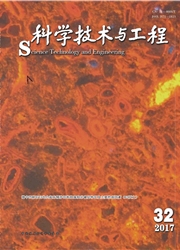

 中文摘要:
中文摘要:
在滇西鹤庆-松桂中生代盆地区,沿中三叠统北衙组(T2b)灰岩古风化壳与松桂组(T2s)泥质灰岩之间,广泛发育一套砂泥质建造,多形成富铁的铝土矿层,并形成多个工业矿床。与目前国内外已知铝土矿床的赋矿层位(C、P)明显不同。通过对鹤庆松桂铝土矿床勘察的实际工作,证实区内存在一个中型铝土矿床。在系统地野外地质调研、岩相剖面实测、岩矿鉴定及分析测试的基础上,基本查明了区内铝土矿床的赋存层位、矿体产状、形态、矿石结构构造、化学组分及形成环境等特征,进而提出了铝土矿床的成因机制。结果表明:(1)赋矿层位为上三叠统中窝组(L2)底部的含铝岩系,受与下伏北衙组(T2b2)灰岩之间的假整合面控制;(2)鹤庆松桂地区的铝土矿颗粒形态多为球形、椭球形,少量为叶片状、土状。铝土矿形状显示该矿区的铝土矿鲕粒形成于同生沉积阶段和成岩后生阶段。(3)经详细的野外地质调查,水流方向为330°方向,揭示了成矿物质的主要来源方向。以上认识可为本区及外围地区铝土矿床成矿规律的深入研究及勘查工作部署提供重要依据。
 英文摘要:
英文摘要:
The area of heqing-songgui Mesozoic basins in the Western Yunnan, a sand-mud construction exten- sive development between limestone palaeo-weathering crust in beiya group (T2b) and shale limestone in songgui group ( T2 s) during the medium Triassic, which form lots of the iron-rich layer of bauxite and multiple industrial ore deposits. While this seam is assigned distinct with the known bauxite deposits( C ,P)at home and abroad. Through the investigation of the bauxite deposits in heqing-songgui area confirmed a medium bauxite deposits in the region. This time on the basic of systematic geological survey, rock, profile measurement, rock and mineral identification and analysis testing and so on clear and basic idengtify the characteristics of the bauxite storage layer, orebody oc- currence and form ore structure, chemical composition and formation environment. By the above, mechanism of the bauxite deposits is proposed. Results show that:firstly ,assigned seam at the bottom of aluminium-containing rock in zhongwo group(T3z) during the upper Triassic, which controled by the integration surface between the zhongwo group and limestone underlying beiya group( T2b). Secondly, the bauxite particle morphology in heqing-songgui is spherical oval, a small amount of leaf-like and earthy, Bauxite formation oolitic shape displays the mining of baux- ite in the same sedimentary and diagenetic epigenetic phases. Thirdly, detailed field geological survey, the direc- tion of flow direction to 330°, reveal the direction of major sources of ore. Above all, the understanding can pro- vides an important basis for metallogenic regularities in-depth study of bauxite deposits and the exploration of de- ployment for this area and outlying areas.
 同期刊论文项目
同期刊论文项目
 同项目期刊论文
同项目期刊论文
 期刊信息
期刊信息
